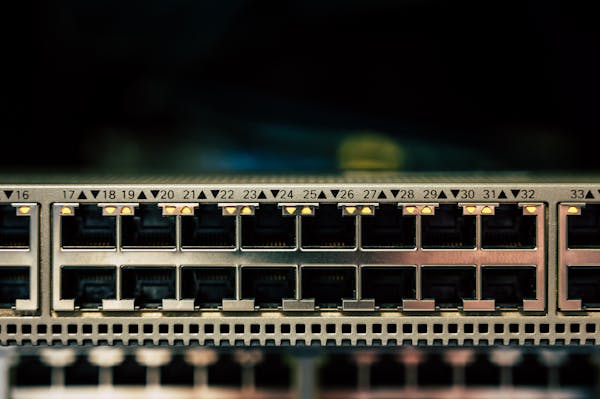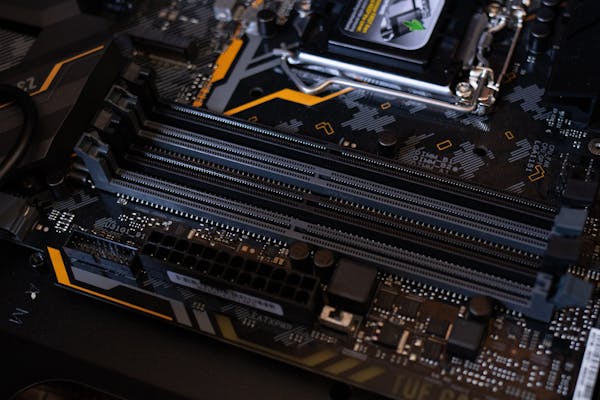
Delving into Mobile 4G Proxies
With the increasing need for online anonymity, 4G rotating proxies have become essential for bypassing geo-restrictions.
What Are 4G Rotating Proxies?
These proxies leverage cellular data connections to assign dynamic IP addresses to users. Unlike static proxies, they change IP addresses periodically, enhancing anonymity.
Mechanism Behind 4G Rotating Proxies
Upon activation, a dynamic IP from a mobile network is provided. These IPs change after specific durations or actions, hindering surveillance.
Why Opt for 4G Rotating Proxies
- Increased Security: Dynamic IP rotation masks real IP addresses.
- Overcoming Location Barriers: Changing IPs enable viewing of geo-blocked sites.
- Minimized Blocking Risks: Frequent IP changes avoid detection systems.
Applications of 4G Rotating Proxies
- Information Gathering: Rotating IPs maintain access to target sites.proxies facilitate automation.
- Ad Verification: Changing IPs simulate diverse user locations.
- o Consider}
In choosing a proxy service, consider:
- Diversity of IP Addresses: A larger pool enhances anonymity.
- Rotation Frequency: Determine if the service offers customizable intervals.
- Location Options: Access to multiple regions aids in geo-testing.
Limitations to Be Aware Of
- Pricing Structures: 4G proxies often have higher costs compared to other types.
- Performance Issues: Mobile networks may affect consistency.
- Compliance Issues: Ensure usage aligns with laws.
Summing Up
Mobile 4G proxies offer unparalleled anonymity, establishing their importance in modern internet usage.
Understanding the Inner Workings of Mobile 4G Proxies
Within the sphere of online anonymity, 4G rotating proxies have become essential components for bypassing geo-restrictions.
Defining 4G Rotating Proxies
These proxies leverage mobile networks to provide changing IPs to users. Unlike static proxies, they change IP addresses periodically, improving security.
Operational Dynamics
Upon connection, a dynamic IP from a mobile network is provided. These IPs rotate based on time or requests, making tracking difficult.
Benefits of Mobile 4G Proxies
- Increased Security: Dynamic IP rotation obscures user identity.
- Overcoming Location Barriers: Changing IPs facilitate unrestricted browsing.
- Reduced IP Bans: Frequent IP changes avoid detection systems.
Practical Implementations
- Data Extraction: Rotating IPs maintain access to target sites.
- Social Media Management: Dynamic proxies support multiple profiles.
- Marketing Research: Changing IPs validate ad placements.
Factors to Consider
In choosing a proxy service, consider:
- Diversity of IP Addresses: A larger pool enhances anonymity.
- Switching Mechanisms: Determine if the service offers customizable intervals.
- Geographical Coverage: Access to multiple regions supports diverse tasks.
Considerations Before Use
- Pricing Structures: 4G proxies may be pricier compared to other types.
- Performance Issues: Mobile networks might experience fluctuations.
- Ethical and Legal Considerations: Ensure usage aligns with laws.
Summing Up
Mobile 4G proxies provide dynamic IP solutions, positioning them as essential tools in contemporary online activities.
Today’s online landscape, remaining private and bypassing restrictions has become more necessary than ever. Scrapers, social media managers, and data analysts often turn to proxy servers to simulate different locations. Among these, 4G rotating proxies have become the go-to solution.
What makes them better or worse than other proxy types like SOCKS5 proxies? Let’s break it down.
== What is a 4G Rotating Proxy?
A LTE rotating IP proxy is a proxy that routes internet traffic through a real mobile device. These proxies rotate IPs at custom timeframes or upon request, emulating human behavior and eliminating the risk of bans or blocks.
== Main Proxy Types
Let’s outline the key proxy types before comparing:
1. **Datacenter Proxies**
– Fast and affordable, but easily detectable.
2. **Residential Proxies**
– Use IPs assigned to real homes. More reliable, but slower and costlier.
3. **4G Mobile Proxies**
– Use real SIMs on LTE networks. Best for scraping, bots, social media.
4. **SOCKS5 Proxies**
– Protocol-based, flexible, used for various apps, not just HTTP.
== Comparison Table
| Feature | 4G Rotating Proxies | Datacenter Proxies | Residential Proxies | SOCKS5 Proxies |
|————————|———————|———————|———————|—————-|
| IP Source | Mobile Network (SIM)| Data Centers | Home IPs | Varies |
| Rotation | Yes (Frequent) | Sometimes | Optional | Manual |
| Ban Resistance | High | Low | Medium | Depends |
| Speed | Medium | High | Low-Medium | High |
| Price | High | Low | Medium | Low-Medium |
| Target Use | Social, Ads, Bots | General Scraping | E-commerce, Research| General |
| Block Detection | Low | High | Medium | Medium |
== Technical Advantages of 4G Rotating Proxies
Why are 4G proxies so powerful?
– **Real Device Trust**: Websites trust mobile IPs more than others due to carrier NAT and wide user pools.
– **Shared Reputation**: IPs are shared across many users, making banning a single user risky.
– **Geo-targeted Mobile Carriers**: Rotate between networks in real U.S. cities or countries.
– **Dynamic Rotation**: Can rotate every few minutes or after each request.
– **Bypasses Captchas**: Mobile IPs are less likely to trigger captchas or challenge verifications.
== Where 4G Proxies Win
Here’s the truth— if you’re doing social media automation, nothing works better than a solid 4G proxy.
– Instagram and TikTok trust mobile IPs.
– Web scraping? You’ll trigger fewer blocks.
– Ads management across banned zones? Done.
== Where They Fall Short
– **Cost**: They’re way more expensive.
– **Speed**: Slower than static datacenter options.
– **Limited Threads**: Some providers limit concurrent usage.
== SOCKS5 vs 4G: Protocol vs Behavior
If you need raw protocol-level control, SOCKS5 is your friend. But they don’t have native rotation.

| Attribute | 4G Proxy | SOCKS5 Proxy |
|———————|——————–|——————–|
| Protocol Type | HTTP/HTTPS | SOCKS5 (All apps) |
| Rotation | Yes | Manual |
| IP Trust Level | Very High | Medium |
| Use Cases | Social, Ads, Bots | Torrenting, Apps |
== Use Cases Side-by-Side
**4G Rotating Proxies:**
– Social Media Management
– Mobile Ad Verification
– SEO Scraping
– Sneaker Bots / E-com Testing
– Marketplace Automation
**Datacenter Proxies:**
– High-volume scraping (non-sensitive)
– Speed-demanding tasks
– Price-conscious campaigns
**Residential Proxies:**
– E-com price intelligence
– Research tools
– CAPTCHA-heavy targets
**SOCKS5 Proxies:**
– Application-level traffic routing
– Anonymity over torrents
– Bypassing firewalls
== How to Choose the Right One?
Each proxy has a time and place. Here’s how to choose:
– Need speed? Go datacenter.
– Need trust and stealth? Go 4G mobile.
– Need app-level routing? Go SOCKS5.
– Need wide IP pools without rotation? Try residential.
== Future of 4G Rotating Proxies
With AI detection systems growing smarter, only mobile IPs are keeping up. We’re seeing:
– 5G proxy rollouts in testing
– Smarter rotation algorithms
– Integration with automation platforms like Jarvee, NextPost, Puppeteer
== Final Verdict
If stealth matters, 4G rotating proxies are your best bet. For any campaign that’s sensitive, black-hat, or gray area, it’s worth the investment.
== Spintax Conclusion
So, whether you’re an agency scaling campaigns, investing in the right proxy is key to success.
They come with a premium, but the benefits outweigh the cost.
https://www.fortinet.com/resources/cyberglossary/proxy-server
https://en.wikipedia.org/wiki/Proxy_server
https://support.microsoft.com/en-us/windows/use-a-proxy-server-in-windows-03096c53-0554-4ffe-b6ab-8b1deee8dae1
https://www.reddit.com/r/explainlikeimfive/comments/1dfgepb/eli5_what_is_a_proxy_server_and_why_would_i_as_an/
https://surfshark.com/blog/proxy-server
Check more https://popl.co (Proxy Seller Coupon Code Discounts)
